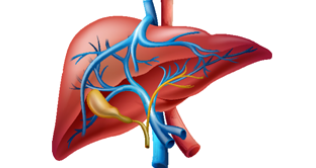
Miles To Go After We Sleep
Social justice, equality and religious tolerance are the foundation of a vibrant democracy like ours. Yet, altruism does not come to us easily. Organ donation, the gift of life, is virtually non-existent in India.
Less than 4000 kidney transplants are carried out annually against an estimated requirement of over 200,000. Similarly, less than 1000 liver transplants are performed every year in a country where thousands perish due to hepatitis B and hepatitis C related end stage liver disease. While majority of organ transplants in the world are done from deceased donors after brain death, majority of our programs are based on living donors. Organ donation after brain death BD in India stands at an abysmal 0.16 per million population as compared to 20 to 30 per million in Western countries. The Transplantation of Human Organs Act 1994 provided for the regulation of removal, storage and transplantation of human organs for therapeutic purposes in India. The Act recognized the concept of BD and gave legal sanction for deceased organ donation, but failed to provide the much-needed boost to altruistic organ donation. India remained the favored destination for organ tourism where, because of poverty, organs were sold to anyone who was willing to pay the price. The reasons for lack of deceased organ donation in India are poorly understood. Even though illiteracy and strong social and religious beliefs were thought to be responsible, many of us believe that lack of awareness not only in the general population but also amongst doctors and para-medics is the main reason. Limiting organ donation to hospitals approved for organ transplantation was another problem. With no systems in place, perhaps, we never asked nicely!
Brain death usually occurs in a setting of head injury, stroke or brain tumor, leading to irreversible loss of consciousness, absence of brainstem reflexes and requirement for ventilatory support. The diagnosis of BD is based on bedside tests performed by a team of four doctors and repeated after 6 hours. The heart continues to beat for 12 to 48 hours after BD and a single heart beating brain-dead donor can save several lives by donating the liver, kidneys, heart, lungs, pancreas and small bowel. Also, once the heart stops beating, several tissues like cornea, heart valves, eardrums, ear bones, tendons and skin could be donated.

There is a need to educate the public on brain death and organ donation. Chapters in schoolbooks and education while applying for voter card / driving license could be introduced. Incentives like railway passes for families of organ donors have been proposed. The transplantation of human organs (Amendment) bill 2009 was passed by the parliament during the monsoon session 2011. The bill shall allow for organ donation from all hospitals with ICU, making declaration of brain death mandatory. Besides having transplant coordinators at all hospitals, there shall be incentives for donor families and more stringent punishment for organ trafficking.
Fortis Organ Retrieval & Transplantation (FORT) has been established to promote and streamline the process of organ donation following brain death in our hospitals. Standard Operating Procedures have been implemented in all our hospitals to declare brain death and counsel families for organ donation. Leaflets explaining the concept of brain death and organ donation are available in waiting areas and our transplant coordinators are at hand to clarify any doubts. 24-hour FORT helpline (08447743868) is available for any assistance with documentation and procedures related to organ and tissue donation, family counseling and support. Queries could also be emailed to [email protected]. Organ pledging facility has been started and organ donor cards are being issued. Over the last one-year, 6 families agreed to donate all organs of their loved ones. Organs are a national resource and must be treated as such by all. Systems have been put in place to make sure that organs, once donated, are optimally utilized.
This blog post has been authored by Dr Avnish Seth, Director, Fortis Organ Retrieval & Transplantation (FORT), Fortis Healthcare.












